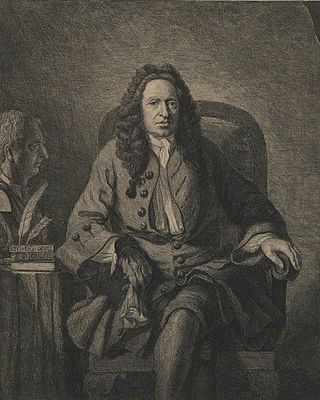Related Research Articles

John Thomas Graves was an Irish jurist and mathematician. He was a friend of William Rowan Hamilton, and is credited both with inspiring Hamilton to discover the quaternions in October 1843 and then discovering their generalization the octonions himself later that same year. He was the brother of both the mathematician and bishop Charles Graves and the writer and clergyman Robert Perceval Graves.

John Thomas Quekett was an English microscopist and histologist.

Humphrey Lloyd FRS FRSE MRIA (1800–1881) was an Irish physicist. He was Erasmus Smith's Professor of Natural and Experimental Philosophy at Trinity College Dublin (1831-1843) and much later Provost (1867–1881). Lloyd is known for experimentally verifying conical refraction, a theoretical prediction made by William Rowan Hamilton about the way light is bent when travelling through a biaxial crystal. He was a Fellow of the Royal Society, and President of both the British Association and the Royal Irish Academy.
Henry Jones (1721–1770), born in Ireland, was a poet and dramatist active in London.

Thomas Taylor (1786–1848) was an Irish botanist, bryologist, and mycologist.
George Hall was an academic at Trinity College Dublin, who served as the fourth Erasmus Smith's Professor of Mathematics from 1799 to 1800, as Provost of the college from 1806 to 1811, and the Church of Ireland Bishop of Dromore for a few days before his death in 1811.

Hugh Hamilton was a mathematician, natural philosopher (scientist) and professor at Trinity College Dublin, and later a Church of Ireland bishop, Bishop of Clonfert and Kilmacduagh and then Bishop of Ossory.
Walter Wade, MD was an Irish physician and botanist. He was the first professor of botany at the National Botanic Gardens of Ireland.
James Townsend Mackay (1775–1862) was a Scottish botanist who lived in Ireland.
William Preston was an Irish poet, playwright and essayist.
Sir George Kettilby Rickards was a political economist in England.
Charles Richard Weld (1813–1869) was an English writer, known as a historian of the Royal Society.

Bryan Robinson (1680–1754) was an Irish physician, academic and writer.
Edward Smyth or Smith (1665–1720) was an Irish Protestant churchman, the bishop of Down and Connor from 1699.
Alexander George Richey (1830–1883) was an Irish barrister and historian.
Andrew Cantwell was an Irish academic in France and medical writer, known as an opponent of inoculation.
Henry Ussher (1741–1790) was an Irish mathematician and astronomer, best known as the inaugural Andrews Professor of Astronomy at Trinity College Dublin (TCD), a title later accompanied with the designation Royal Astronomer of Ireland. Ussher was a key player in the setting up of Dunsink Observatory outside the city of Dublin, and was its first director.

Richard Helsham was an Irish physician and natural philosopher at Trinity College Dublin. He was the inaugural Erasmus Smith's Professor of Natural and Experimental Philosophy from 1724 and Regius Professor of Physic from 1733.
Thomas Healde FRS was an English physician.
Robert Perceval was an Irish physician, chemist, and traveller. He was the first professor of chemistry at Trinity College Dublin and a founding member of the Royal Irish Academy. He was called the "father of the medical profession in Dublin".
References
- ↑ "Stack, Richard | Dictionary of Irish Biography". www.dib.ie. Retrieved 9 July 2021.
- ↑ Carlyle, Edward Irving (1898). . In Lee, Sidney (ed.). Dictionary of National Biography . Vol. 53. London: Smith, Elder & Co.
sources: [Reuss's Register of Authors, 1770–90 p. 381, 1790–1803 ii. 348; Dict. of Living Authors, 1816; Allibone's Dict. of Authors; Index to Transactions of the Royal Irish Acad. 1813.]
- Attribution
. Dictionary of National Biography . London: Smith, Elder & Co. 1885–1900.